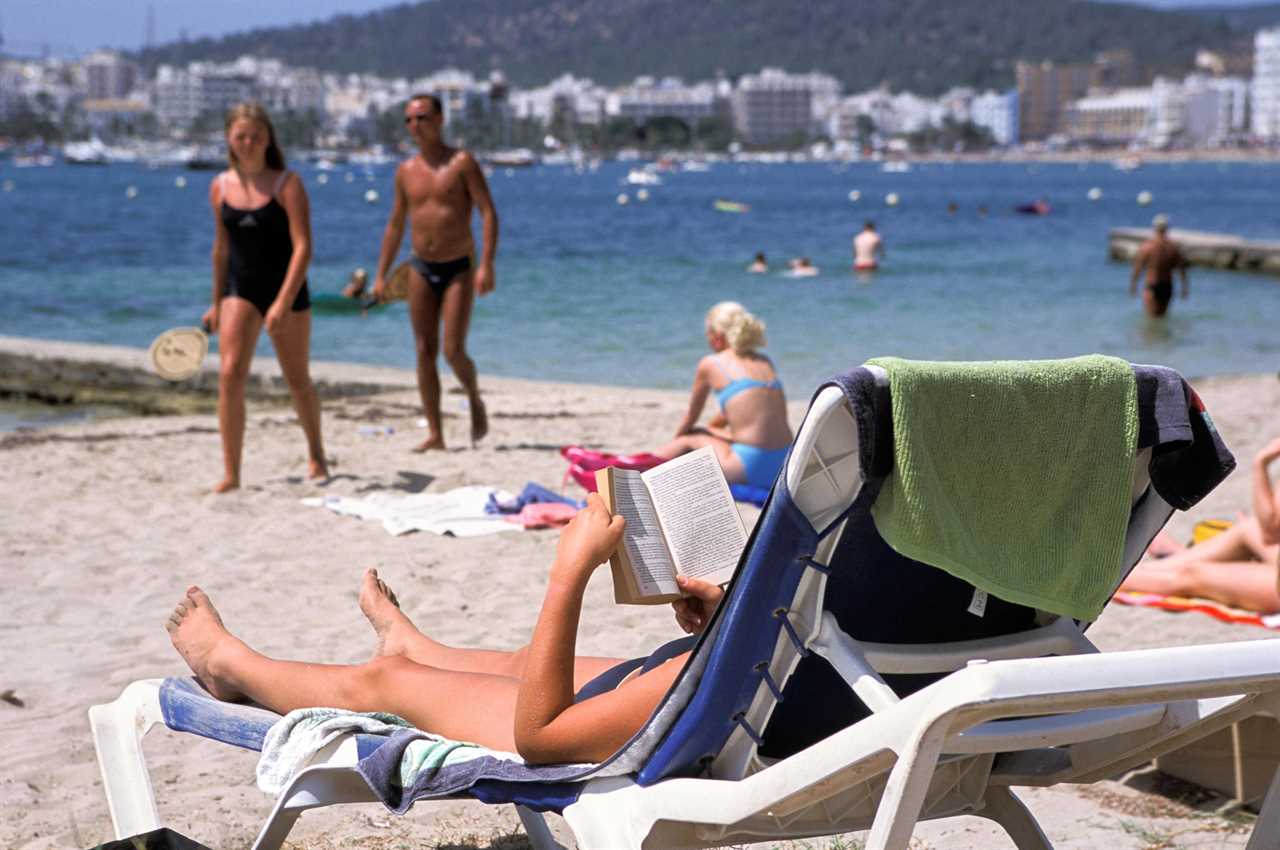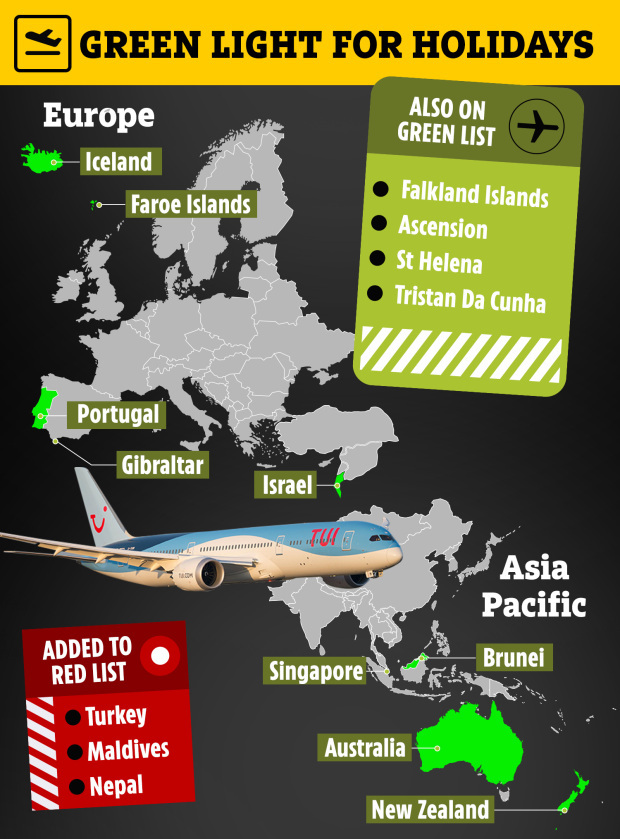TRAVEL plans that allow Brits abroad will let new variants into the UK, experts have warned.
The pandemic is still raging on in the rest of the world, but the Government is set to give the green light for visits to more countries.

Read our coronavirus live blog for the latest updates

From May 17, the “stay in the UK” restriction will lift and overseas holidays will be possible, albeit with rules.
People will be able to travel to “green list” countries including Portugal, Iceland and Israel without having to quarantine, provided they take one post-arrival test.
And more countries could join the list in June if their vaccine programmes go well and infections come down, including Fiji, the Cayman Islands, Grenada, Finland and Malta.
But favourite Brit destinations like Spain, Greece, Italy and France are all on the amber list which requires a 10-day home quarantine when returning to the UK, and this is not expected to change soon.
Virologists Jangu Banatvala and Deenan Pillay urged caution against opening up international travel too quickly.
Writing in the British Medical Journal (BMJ) with Peter Muir, scientists at PHE South West Regional Laboratory Bristol, they said “Covid is likely to be endemic globally for the foreseeable future”.
And it’s not yet over in the UK, with scientific modelling predicting a third surge of infections peaking around late summer.
Although the UK is in a world-leading position with its vaccine programme, it is not a silver bullet and travel poses a unique Covid challenge.
In other countries, new variants may be in circulation which can then be introduced into the UK.
New variants pose a threat due to the potential vaccines work less effectively against them, therefore driving up hospitalisations and deaths once again.
The experts wrote: “Until our vaccination programme is complete, and while there are significant risks of immune-escape variants arising in countries with high transmission, it would be remiss to abandon all attempts to limit new variants being imported into the UK.”
Chile is a “salutary reminder” of how Covid rates can increase again despite a successful vaccine rollout, the BMJ paper said.
“They have relaxed social distancing and travel restrictions, and public health experts say that this, combined with more infectious variants has contributed to the surge in infections.”
Already the UK is experiencing a surge of new cases fuelled by a new variant from India that entered before the country was put on the “red list”.

Prof Pillay and Banatvala pointed out the concerns of the All-Party Parliamentary Group (APPG) on coronavirus.
MPs on the group were told in April that airports were currently a hotbed for coronavirus infections.
Lucy Moreton, a professional officer for the Immigration Services Union (ISU), which represents border immigration and customs staff in the UK, said: “We know it’s not possible to segregate people from red, amber green [locations].
“They are going to mix, it’s a confined space. Yes there is air conditioning, but it’s a confined space.
“Even if we separated that one risky passenger out at some point in their journey, my understanding transmission could occur at any point [in their journey]. So we are not truly isolating that risk.”
Covid test certificates – which are currently compulsory to enter the UK – are also being faked, but security do not have the tools to spot which ones are real.
Concerned experts said there appears to be no way of controlling infections throughout airports and journeys, as Prof Pillay said chaotic airpots made “a nonsense” of the traffic light system.






